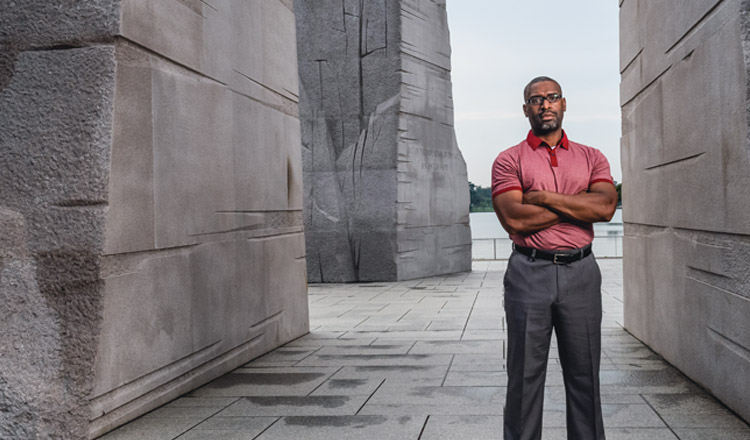Rise to the occasion
Prentice Parrish (MS M’00) is a commissioner for the Mayor’s Commission on African American Affairs in Washington, DC
When Prentice Parrish joined the Mayor’s Commission on African American Affairs in November 2019, he knew he had a big job ahead of him: the commission focuses on areas ranging from policy to programs to community engagement. Parrish joined a committee focused on economic empowerment.
Six months after joining the commission, when George Floyd’s killing spurred the nation to widespread protests, he knew the country was at an inflection point. He also knew that he was in exactly the right position to step up.
“It’s all related,” he says of the proposals that gained traction as a result of the protests and the work that the commission has focused on for years. “It was pent-up frustration of the state and status of Black people in the United States.” He ticks off grim statistics: The unemployment rate for African Americans has been historically higher than that of white people. The median net worth for a white family is 10 times higher than that of a Black family. Black families are 40 percent less likely to own a home than white families.
While there’s no silver bullet to transform those numbers, he and his colleagues are tapping into an appetite for change. “There’s been an awakening cognitively and more importantly emotionally for a lot of people who didn’t understand the situation. This is a unique opportunity to create programs and policies to start turning some of these things around. It opens a door of opportunity.”
How he gets it done: “Everyone’s got something that they can contribute. For me? Going out and being at the front of a march isn’t necessarily going to be my primary contribution. But the things I do with the commission are how I can contribute.”
Seize the moment
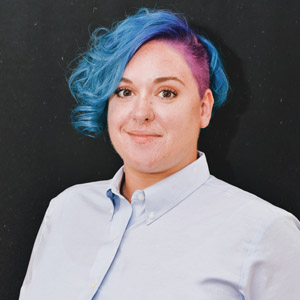
Washington, DC, can often feel like a car-clogged city, but Emily Dalphy (CE’08), transportation engineer for the District Department of Transportation, has dreamed for years of codifying a neighborhood ‘slow streets’ program. She and her colleagues imagine a network of neighborhood streets designed primarily for bikes and pedestrians, with car access limited to residents only.
The idea has been on the back burner for years, but COVID-19 has upended plenty of once-hardened opinions. “As kids go back to school, as adults go back to work, and as people rethink public transportation because of COVID, there’s a lot more support for spaces to bike and walk,” she says. “This situation is giving us the opportunity to test out some new projects. That feels exciting.”
Create a vision
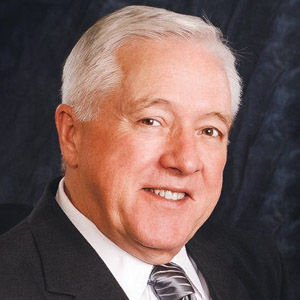
Dick Sears launched his mayoral bid on a dare.
In 2000, the wife of a sitting council member for Holly Springs, North Carolina, told Sears that his 30 years of marketing experience for Sears Roebuck would be a boon for the town. She dared him to run.
He declined, but then she upped the ante. “I got the double dare,” he recalls.
It was a challenge too good to pass up.
He paid a $50 registration fee and started knocking on doors with an irresistible political slogan: If it’s good for kids, it’s good for Holly Springs. Sears was elected that fall.
In the 19 years since, Sears has helped build a bigger, better town that epitomizes that message. The population has skyrocketed, from just under 3,000 to more than 40,000. It’s developed top-notch schools. It’s attracted big-name companies, including the vaccine-manufacturing facility Seqirus (formerly Novartis), and will soon open a new seven-story hospital, both of which provide plenty of jobs and make for a short commute for employees who make Holly Springs home.
But the real point of pride, says Sears, is a designation his town has received nearly annually for more than a decade: safest town to live in the state. It’s routinely recognized for its safe roads and low rates of crime. “That’s the crux,” he says. “You can do everything else right, but if your town isn’t safe, you haven’t accomplished anything.”
How he gets it done: “You’ve got to listen to your citizens. I might not agree with everyone, but I take all their ideas into consideration. If your mind is totally made up on anything, your brain is dead. People have a lot to offer, pro and con, on everything. If you listen to all of them, usually you’ll come to the right decision.”
Play well with others
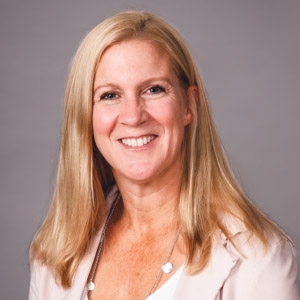
Laura Shurr Blaney had a laundry list of things she knew could be improved when she was elected commissioner of Porter County, Indiana, in 2012: roads and infrastructure, a crumbling but beloved opera house, and a small and underfunded animal shelter.
But more than any specific improvement, she wanted to see a county government filled with people who loved their jobs and wanted to do their best for the community. “We have a fantastic community, and I wanted to fix the culture and make the government a place that people really wanted to come to work,” she says.
She — along with the two commissioners that make up the executive branch of the county — have done exactly that. They’ve filled the roles with positive, goal-oriented people, given them the chance to take the reins in their areas of expertise, and helped them grow into their positions. And along the way, they’ve improved the roads, stormwater infrastructure, Memorial Opera House, and animal shelter.
The collaborative approach has been integral to success. “There’s no ‘one person’ who does something,” she says. “It’s always a collaboration. We throw ideas back and forth, and when we come out of a meeting, we’re on fire to move forward with what we’ve come up with. That’s an approach that makes every department better and allows us to accomplish so much more.”
How she gets it done: “I like to learn how different people approach an issue and see it from their viewpoint. When I understand that, I can explain my perspective in a way that makes sense to them.”
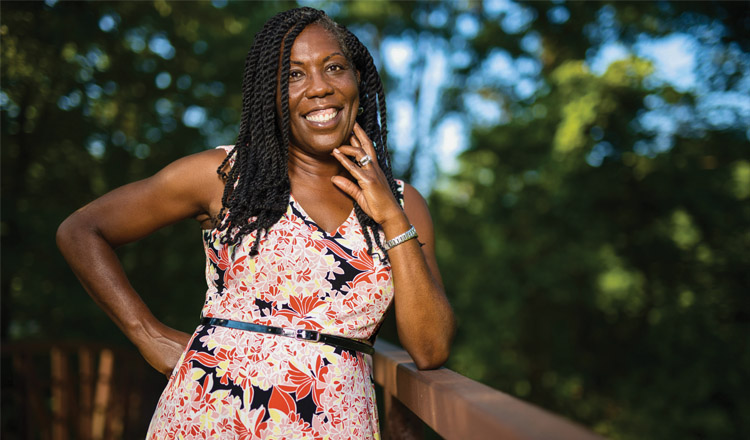
Give more people a seat at the table
Before she became a school board member, Shaunna Finley spent years as a high school principal at School City of East Chicago and Neighbors’ Educational Opportunities in Portage, Indiana. In other words: she knows how to command a room when she needs to.
But to her, leadership has always been less about hierarchy than collaboration. “I always think about a book I read by Colin Powell,” she recalls. “Whenever he would have one of his assistants come in his office to meet him, instead of having them sit across from his desk, he would walk around his desk and sit at a round table with them. It was more collaborative.”
While that philosophy has always been important to her — the approach helped the board build support to renovate the high school pool, for example — it’s been particularly valuable in the era of COVID-19.
In early June, Finley was laser focused on getting feedback from parents regarding their ideas and concerns about any potential back-to-school plans the school might adopt. “You can make all the decisions in the world that you want, but if you don’t give people a seat at the table, your plan will not work,” she says. “Top-down models don’t work.”
How she gets it done: “I was the first person from my family to graduate with a high school diploma, and I’m someone who’s always wanted to go to school forever. I’m always asking: How can I be better? How can we be better? It’s important to welcome that conversation.”
Adapt great ideas
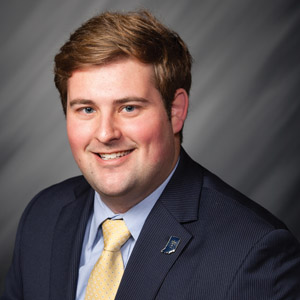
When Matt Gentry decided to run for mayor at age 25, he knew that voters might worry that he wasn’t old enough to bring hard-won wisdom to the table.
So he promised them something even better: he’d use the very best of others’ experiences — gleaned from work as a consultant and in the Indiana House of Representatives — and modify them for his community of 16,000. “In my profession, there’s no law against plagiarism,” he jokes. “I can take the good ideas from other communities and turn them into something that makes sense locally.”
Gentry, now serving a second term, can point to plenty of improvements in his community that have come as a result of the philosophy, from more financial transparency to online permitting. He and his colleagues have invested in a total reconstruction of the downtown square, including replacing infrastructure and pipes. The town has poured more resources into parks, pools, and splash pads.
It’s seeing these kinds of improvements — ones that affect people’s daily lives — that energizes Gentry. “When I talk to other mayors, I don’t necessarily know if they’re Democrats or Republicans. We’re all just focused on trying to make our communities better,” he says. “That’s what inspires me to keep pushing things forward.”
How he gets it done: “It’s important to do things for the right reasons. I always say that we’re only as strong as our weakest neighborhoods. It’s why we’ve invested a lot in places that have been neglected for a long time. I try to bring everybody up.”
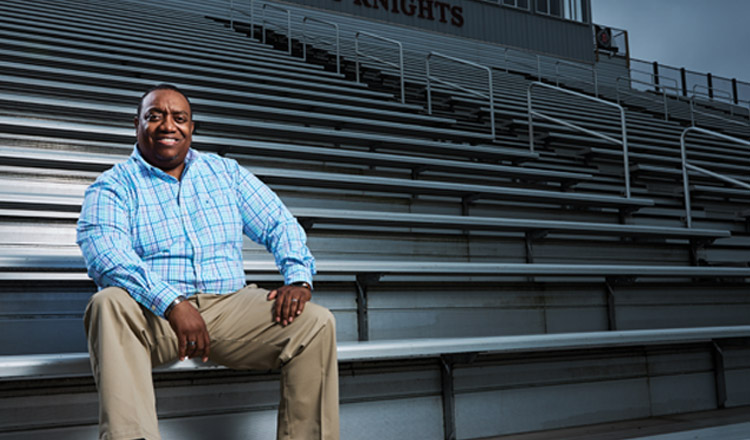
See the full picture
For Stacie Belfrom, the idea initially felt like an easy sell: Parents shouldn’t drop their kids off at school, and all students should take the bus. But then he saw the eye-popping numbers: running a single bus route cost the district more than $60,000 per academic year. “When you want to make changes in one place, you have to understand the ripple effect in others,” he explains. “One of the biggest challenges of this job is making sure you have a clear view of everything.”
Prepandemic, Belfrom and his colleagues on the school board in Kings Mills, Ohio, were focused on things like diversity, professional development, and a community learning series — parent-focused topics like how TikTok works and issues related to drugs, alcohol, and vaping.
COVID-19, however, has since taken over nearly every conversation, and keeping tabs on all the moving pieces remains essential, says Belfrom. “We’ve got people who think we should be able to go back now with no restrictions and people who say they won’t send their kids back until there’s a vaccine. We have staff members concerned about themselves and their families and advice from the CDC and the governor. And we’ve got state budget cuts, too,” he says.
Daunting? Sure. But he wouldn’t change a thing. “It’s a privilege to listen to our community, to bring up concerns with my colleagues and administration, and do the things that can help move us in a better direction,” Belfrom says. “I welcome the challenge.”
How he gets it done: “There’s so much energy for change right now — the important thing is focusing that energy into being intentional and using the government to do that. The goal is to create change that can really work for everyone.”
Play to your strengths
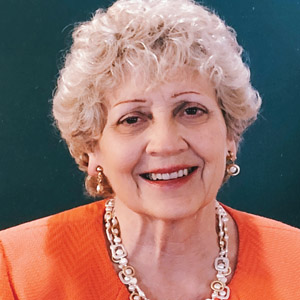
Lynne Brown (HHS’70, MS HHS’72, PhD HHS’81) is chair of the city of San Jose, California, Arts Commission and part of its public art committee, which has supported art-based initiatives across the city, including one that commissioned local artists to brighten major city underpasses with unique art installations.
She says it’s time for more people to step up and share their expertise in civic roles. “When you find what you’re passionate about, start thinking about all the times you’ve said to yourself, ‘Golly, I wish these people understood something that I do — budgeting, marketing, development, insurance, facilities.’ You can become that bridge for them.”
Did you know?
Two Boilermakers were tapped by President Donald Trump to serve in under secretary posts within his administration.
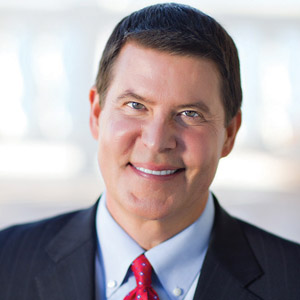
Keith Krach (IE’79, HDR IE’18)
Under Secretary for Economic Growth, Energy, and the Environment, US Department of State
In his testimony before the Senate Foreign Relations Committee on May 5, 2019, Krach shared his motivation to serve: “I think we all want to leave and preserve the health of our planet for our children and our grandchildren.”
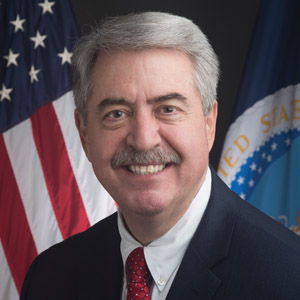
Ted McKinney (A’81)
Under Secretary for Trade and Foreign Agricultural Affairs, US Department of Agriculture
Successful Farming reported that McKinney’s personal credo is that “more than halfway to winning the battle is just showing up.” Respect your partners, create lasting relationships that are balanced in both directions.

